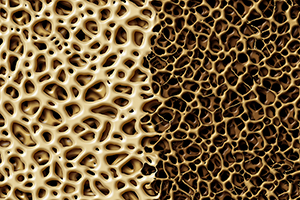



| By Dr. Ronald Hoffman
One of the most contentious issues in the field of endocrinology is whether natural thyroid medications (Armour Thyroid, Natural Desiccated Thyroid, Thyrolar etc.) are better alternatives for some patients suffering from hypothyroidism than synthetic drugs (Synthroid, Levothroid, L-thyroxine, etc.).
 A little basic thyroid physiology is in order here. The thyroid naturally produces two main forms of thyroid hormone—T3 and T4. T3, or triiodothyronine, is “body-ready” and primed to act immediately on cells throughout the body to boost metabolism. T4, or L-thyroxine, on the other hand, requires transformation by the body into active, utilizable T3.
A little basic thyroid physiology is in order here. The thyroid naturally produces two main forms of thyroid hormone—T3 and T4. T3, or triiodothyronine, is “body-ready” and primed to act immediately on cells throughout the body to boost metabolism. T4, or L-thyroxine, on the other hand, requires transformation by the body into active, utilizable T3.
Usually, in healthy young adults, the transformation of T4 to T3 occurs quite readily. But in cases of illness or debilitation, or in the presence of environmental toxins or stress, or because of the effects of certain medications, the transformation is hampered.
Mainstream endocrinologists have long taken the position that T4 is just fine for replacing thyroid hormone in patients with hypothyroidism. Besides, they contend, T3 is too potent for some patients, creating the risk of side effects such as palpitations and anxiety. Besides, they don’t like the way that T3 interferes with the tests they rely on to assess adequacy of thyroid replacement.
But most integrative practitioners recognize that many of our patients have roadblocks to efficient conversion of T4 to T3. Even when standard blood tests show the patient is getting enough thyroid, the patients’ symptoms of fatigue, depression, lack of focus, bloating, dry skin, menstrual irregularity and inability to lose weight are not alleviated. We believe that these patients are candidates for medications that combine T4 and T3 in natural ratios just like the thyroid naturally produces. Our goal is to treat patients’ complaints instead of merely correcting test results on paper.
Having used this therapy for nearly the entire three decades of my professional career, I can scarcely think of another break with standard medical practice that has been equally rewarding for my patients. I have treated scores of thyroid sufferers, many of whom did not achieve optimization with standard thyroid meds; they obtained major breakthroughs when they switched to natural thyroid preparations. I couldn’t in good conscience short-change these patients by blindly adhering to orthodox medical guidelines.
By the way, natural thyroid extracts were used successfully for over seventy years for countless patients before the pharmaceutical industry introduced new “improved” thyroid formulations.
But now, in 2014, in recognition of the fact that many hypothyroid patients haven’t obtained complete relief with T4 medications, you might think that the Thyroid Establishment would allow the door to open just a crack and acknowledge the legitimacy of patient-centered thyroid prescribing incorporating T3.
But no! In a resounding repudiation of anything but mainstream thyroid treatment, a specially-convened panel of the American Thyroid Association has concluded that the drug L-thyroxine (T4) should remain the “standard of care.”
They do so even while acknowledging “while T4 is effective in most patients, some do not regain ideal health when taking T4 alone.”
In effect, they take the position that it is better to leave some patients “high and dry” with unresolved symptoms than deviate from established practice.
This exclusive group of self-appointed guardians of our thyroid health–comprised entirely of mainstream endocrinologists–are “circling the wagons” against critics of the mainstream paradigm.
Their stance flies in the face of evidence like a study that shows that T4/T3 helps mood and cognition to a greater degree than T4 alone.
The ATA’s ruling will mean it will continue to be hard for patients to find doctors willing risk their medical licenses and incur liability by stepping away from the standard of care on thyroid. The new edict will also make it harder for patients to obtain insurance reimbursement for thyroid treatment with other-than-approved drugs.
A word of caution: Like any medication, even “natural” thyroid treatments can be dangerous if not administered properly. If you want to try it, make sure you work with an integrative practitioner well-versed in thyroid therapy.
And beware of self-treating with over-the-counter thyroid products. Sure, some ingredients like selenium, iodine, and L-tyrosine can boost thyroid function to a modest degree. But according to a recent review, certain products contain significant undisclosed amounts of actual thyroid hormone, which should only be available by prescription and monitored by a doctor. These hidden hormones could have unintended and potentially dangerous health consequences.
Though we think of declining estrogen as the hallmark of menopause, it's actually common for…

Up to 12 percent of Americans have ulcers at some point in life. Peptic ulcers…
Gallbladder disease is a modern illness. An estimated 20 million Americans have gallbladder disease. The…

Lately, I’ve been sharing with Intelligent Medicine listeners that I’ve been augmenting my diet with…

Q: I am a 77-year-old woman. On recent bone density test, lumbar spine results range…

The 1973 sci-fi movie Soylent Green depicts a dystopian future in which over-population and environmental…

A New Era in Wellness: Non-CBD Innovations with Lex Pelger, Part 1

Our virtual voicemail is open 24/7, so there's no need to wait to submit your questions for Dr. Hoffman. Leave a message, and you may hear your question featured on the Intelligent Medicine radio program!